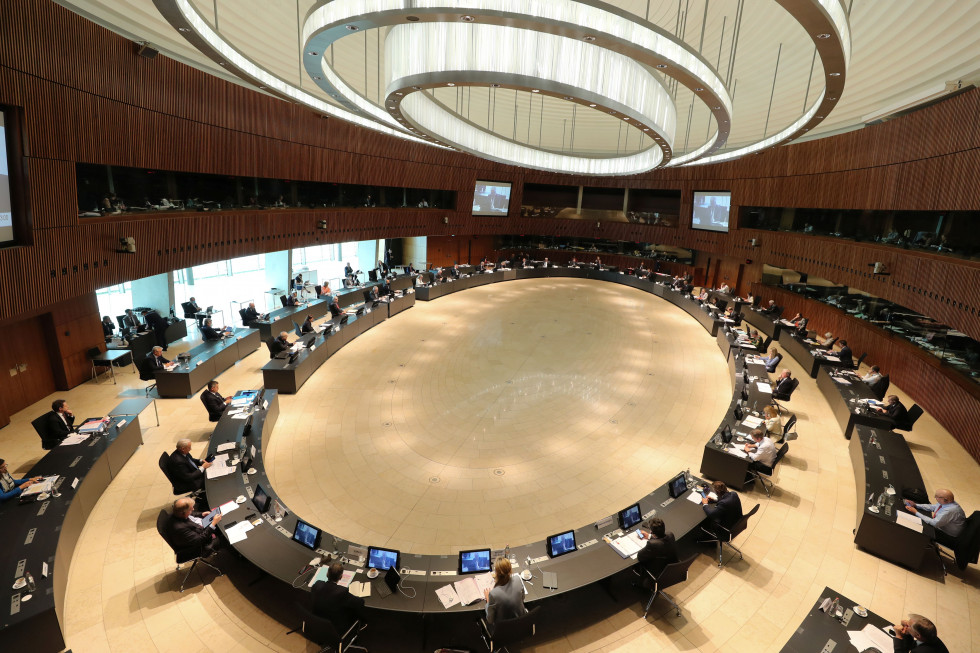By: UKOM
Interior ministers, including Slovenia’s Aleš Hojs, held a meeting in Luxembourg yesterday. The initial exchange of views focused on the Strategy on the future of Schengen, which was presented by the European Commission last week.
Minister Hojs welcomed the strategy, which Slovenia is still looking into. “It would be a tremendous step forward if the Member States agreed to make recommendations binding.” The Minister also stressed that internal border controls should be proportionate and temporary, and introduced only in urgent cases. “In order to achieve the Schengen area without internal border controls, external border controls need to be reinforced.” Our goal is a fully operational and resilient Schengen area, which is one of the priorities of the upcoming Slovenian Presidency of the Council of the EU. The priorities for the next six months presented by Minister Hojs at the end of the meeting will include integrated migration management and ensuring a high level of security in the EU and Slovenia, while the regional priority will be the Western Balkans.
Over lunch, ministers covered the topic of joint management of migratory flows. Minister Hojs stressed the need to work towards reinforced external EU border controls and intensified returns. These two goals are attainable through partnerships with third countries. The focus must be on tackling the root causes of migration. “The Portuguese Presidency has done great work in this respect, especially through the joint conference of interior and foreign ministers and the recent ministerial conference involving African partners,” Hojs congratulated his Portuguese colleague and announced Slovenia’s efforts to counter illegal migration, particularly in the Western Balkans region.
Ministers also held a debate on the impact of COVID-19 on fighting crime. After one year of the COVID-19 pandemic, it is now time to take stock of what we have learned, Hojs added, upholding the efforts of the Portuguese Presidency. “We had to quickly adapt to the new reality, shift to working from home and in the virtual environment, which initially slowed down information sharing.” The fight against pandemic-related crime is a priority for Slovenia in internal security. “We regularly exchange information with other Member States and the relevant EU agencies, and we will continue to do so in the future.”
The meeting also included a debate on the impact of artificial intelligence on internal security, following the presentation of the European Commission on 21 April 2021 of a proposal for a regulation aiming to turn Europe into the global hub for trustworthy artificial intelligence. Minister Hojs supported the development of new rules at EU level to regulate the use of artificial intelligence. “We would, however, like the proposal to take into consideration the specific needs of law enforcement. The proposed rules could limit the use of artificial intelligence technologies by police authorities. Since this community has a crucial role, it is certainly not in our interest to establish a system that would extremely slow down or even halt development and reduce effectiveness of police authorities in the fight against crime,” the Minister added, presenting Slovenia’s take on the topic.
The Presidency also briefed on the state of play of negotiations and progress on individual legislative acts, including the Pact on Migration and Asylum and the proposal for the Europol regulation.
Source: gov.si

